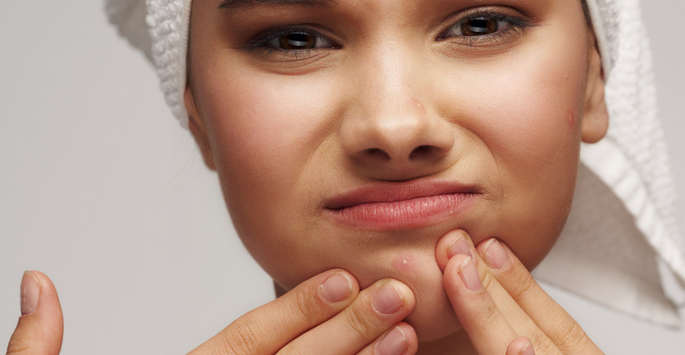
Acne can be a frustrating and embarrassing skin condition that affects almost all of us at some point in our lives. While there are many treatments available to help clear up acne, sometimes you just need to cover it up until it goes away and go on with your daily life. But if you're not careful, using the wrong products to cover up acne can actually make your breakouts worse.
So, what are the best ways to cover up acne that won't cause more breakouts? Here are some tips:
Use a lightweight, oil-free foundation or concealer. Heavy, oil-based makeup can clog pores and contribute to acne breakouts. Look for a lightweight, oil-free foundation or concealer that won't cake up or sit on top of your skin. Opt for a formula that is breathable and doesn't contain pore-clogging ingredients like mineral oil or petrolatum. Steer clear of anything that claims to be medium to full coverage.
Set your makeup with a translucent powder. After applying your foundation or concealer, use a translucent powder to set your makeup and help it last longer. This will also help to absorb excess oil and reduce the risk of breakouts. Avoid using a powder that is too heavy or that contains ingredients that can irritate your skin, like talc or alcohol.
Use a primer before applying your makeup. A primer can help to smooth out your skin and create a barrier between your skin and your makeup. This can help to prevent your makeup from getting into your pores and causing breakouts. Look for a primer that is formulated for acne-prone skin and that won't clog pores.
Avoid using makeup wipes to remove your makeup. While makeup wipes may seem like an easy and convenient way to remove your makeup, we normally only recommend them for use once in a while, and they should never be the only step in your cleansing routine. They can actually be harsh on your skin and contribute to breakouts, especially if you use them every day in place of an acne-targeting cleanser. Instead, opt for a gentle, oil-free makeup remover or a creamy, non-comedogenic cleanser to remove your makeup. This will be gentler on your skin and help to prevent breakouts.
Use a non-comedogenic moisturizer. Moisturizing is an important step in any skincare routine, especially if you have acne-prone skin. But if you use a moisturizer that is too heavy or contains pore-clogging ingredients, it can contribute to breakouts. Look for a non-comedogenic moisturizer that is specifically formulated for acne-prone skin and won't clog pores. The ingredient that will likely work best with acne-prone skin is always hyaluronic acid.
Don't pick at your acne. It can be tempting to try and pick at your acne, but this can actually make your breakouts worse. Picking at your acne can spread bacteria and cause inflammation, which can lead to more breakouts. Instead, try using a spot treatment or over-the-counter acne medication to help clear up your breakouts.
Keep your makeup brushes and sponges clean. Dirty makeup brushes and sponges can harbor bacteria and oil, which can contribute to breakouts. Make sure to regularly clean your makeup brushes and sponges to prevent bacteria and oil buildup. You can use a gentle brush cleaner or soap and water to clean them, and our recommendation is to do this every two weeks at most.
Avoid using makeup that contains artificial fragrances. Many makeup products contain artificial fragrances, which can be irritating to the skin and contribute to breakouts. Look for makeup products that are fragrance-free or that contain natural fragrances to help minimize the risk of irritation and breakouts.
Don't forget to remove your makeup before going to bed. Leaving your makeup on overnight can clog pores and contribute to breakouts. Make sure to remove your makeup before going to bed to keep your skin clean and healthy.
Use retinol. This will help to regulate your oil production dramatically, and it will help your skin cells quickly turnover and heal breakouts. You'll have to be vigilant while using this ingredient as it can lead to some additional irritation if you get too aggressive too quickly. So we suggest trying it on a night when you won't be using any exfoliators (chemical or physical) and start with a low dose of .025%.
